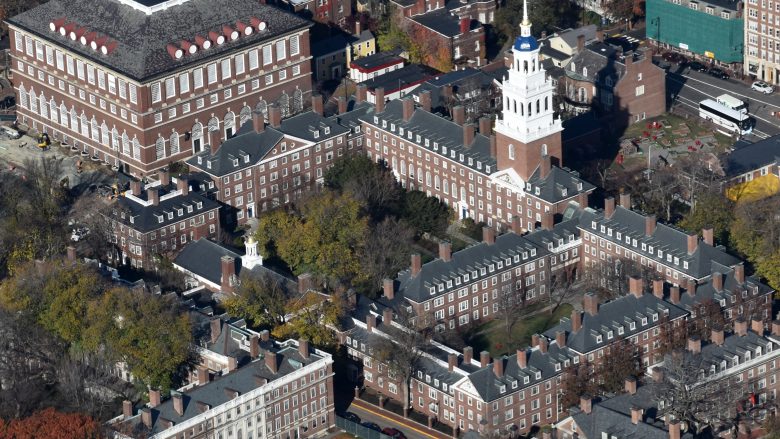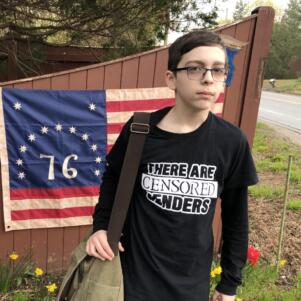Harvard seeks dismissal of lawsuit over sex assault case
By Evan Lips | June 14, 2016, 18:06 EDT
 Lowell House, the building with the spire in the center, is an undergraduate residence hall at Harvard University. (Photo courtesy of Wikipedia.org)
Lowell House, the building with the spire in the center, is an undergraduate residence hall at Harvard University. (Photo courtesy of Wikipedia.org) CAMBRIDGE – Harvard University is refusing to settle with a female graduate who accused the Ivy League institution of failing to follow federal rules on handling allegations of sexual assault in a bombshell federal lawsuit brought against the school in February.
In a recent court filing, Harvard lawyers not only signaled their plan to try to get the case dismissed but also asked U.S. District Court Judge Denise J. Casper in Boston to keep the motion private, citing “confidential and intimately private information about parties and non-parties and is a record protected against disclosure by the Family Educational Rights and Privacy Act.”
Alyssa Leader – who accused the school of dismissing her claims that an ex-boyfriend had sexually abused and harassed her – has agreed to the request to keep the university’s motion to dismiss out of the public eye, according to the filing.
“Throughout the complaint, Leader discusses and relies upon the final report of the investigation into Leader’s complaints, issued by Harvard’s Office for Sexual and Gender Based Dispute Resolution,” the latest motion states. “The final report contains sensitive nonpublic information about Leader, John Doe, and other Harvard College student witnesses provided to Harvard in connection with a process for which Harvard commits to taking ‘reasonable steps to protect the privacy of all involved.’”
Leader’s lawsuit hinges significantly on the Obama administration’s newest interpretation of a 1972 law called Title IX, which deals with sex discrimination in education. Most recently, an expelled Yale University senior sued the school in federal court, alleging he was denied due process by administrators who investigated and adjudicated a sexual assault complaint.
Under its latest interpretation of Title IX, the U.S. Department of Education requires colleges and universities which receive federal funding to use a legal standard known as a “preponderance of the evidence” when handling claims of sexual assault or harassment. Previously, administrators typically required either “proof beyond a reasonable doubt” or “clear and convincing evidence” concerning such allegations.
School administrators learned of the change from “dear colleague” letters sent out by the Education Department in 2011. The document instructed schools to rely on a “more likely than not” standard in order to determine guilt in sexual assault cases.
If Judge Casper in Boston accepts Harvard’s request to bar the public from access to its motion to dismiss, not only will “sensitive” information be kept hidden, so will the university’s argument for not applying the latest Title IX directives in Leader’s case.
Leader’s complaint frequently refers to Title IX and stresses that since Harvard benefits from federal funding, it must comply with the revised regulations. Harvard students benefit from federal aid and researchers at the school pulled in more than $600 million in U.S. government funding in 2014, according to the Harvard Crimson student newspaper.
A request for comment from Harvard didn’t produce an immediate response Tuesday.
Read a copy of Harvard’s request to keep its filing private here:
Harvard University — Motion to seal in Leader case











